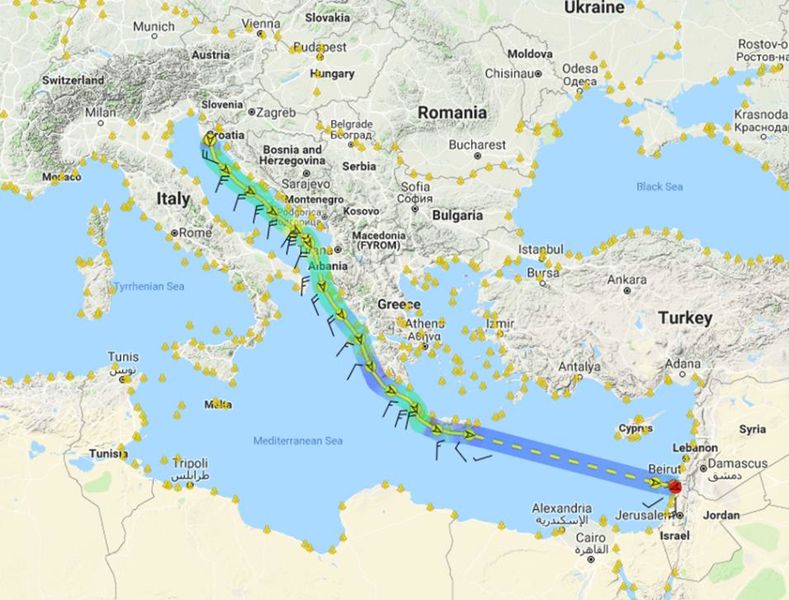Croatia | Port Raša | Sea transport from Croatia to Lebanon and Israel
The journey by sea takes almost eight days from Croatia to Israel on the Phoenix I and Phoenix. The ships are loaded with calves from Hungary, Latvia and Lithuania.
At the beginning of February, our team travels to Croatia. The team spends almost one week close to Pula city, where Raša port, one of the main exit ports of live animals to non-European countries, is located.
Our team observes the arrival of three empty livestock vessels: Phoenix I, Phoenix III and Dragon, while at the same time dozens of trucks arrive by road, loaded with thousands of young calves from Latvia, Lithuania and Hungary, and bulls mainly from Hungary and Croatia. The animals are loaded directly from the trucks onto the vessels. The loading facilities are still poor and have not improved over the last years despite our complaints. The handling of the animals is very unprofessional, especially during the loading of the calves. The workers from the port beat the scared and terrified young animals non-stop and the official veterinarians from the port of Raša are not intervening to change this situation.
These animals are not slaughtered as close as possible to their place of rearing. They are transported over extremely long distances, since the demand for fresh meat in the Middle East and North of Africa has significantly increased over the last years. Therefore, the journey of these animals is not over yet, they still have very long trip ahead, lasting almost eight days more at the sea in very poor conditions, until they reach their destination, Haifa (Israel) or Beirut (Lebanon).
Our team will continue to observe and denounce these horrible export practices that affect millions of European animals every year.







